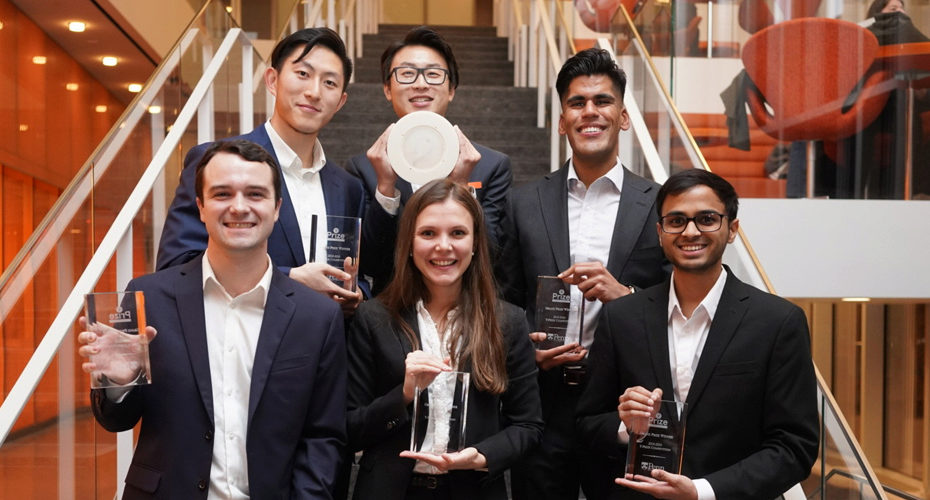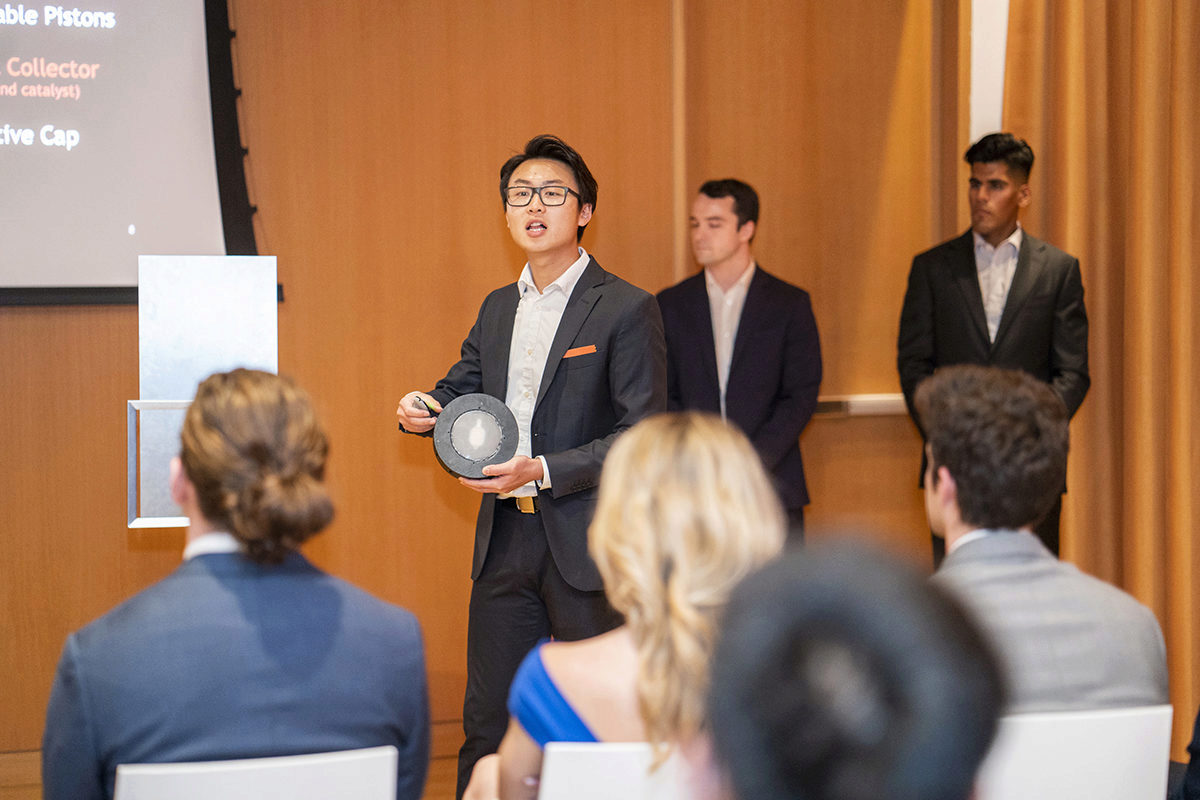
Four student teams wowed the judges at the 2020 Y-Prize Competition and took home prize money to invest in their ideas about how to repair and harvest energy from metal.
About 600 million people across the globe don’t have access to electricity. In rural areas of developing countries in Africa and Asia where electricity isn’t widely available, families use kerosene lamps to light their homes. In many communities, it’s the only option available for fuel, but burning kerosene can release toxins into the air, making it dangerous for families to breathe in and harmful for the environment.
Enter Metal Light, this year’s Y-Prize winning team: Leo Li, Johns Hopkins Medicine, ’21, Yumin Gao, Johns Hopkins Public Health, ’20, Mohammed Dhanjy, WG’21, Ryan Goethals, GME’21, Kateryna Kharenko, WG’21, and Darshan Bhosale, GME’20.

Rather than relying on kerosene or a battery, the team pitched a low-cost sustainable light that illuminates when it comes into contact with a metal surface. The team’s prototype can be powered, for example, by a piece of scrap metal for up to six hours at 400 lumens, which is enough to fill a small room with soft light. Unlike solar power, the functionality of the light isn’t affected by rain or cloudy conditions, and it doesn’t require installation. By using NGOs as their distribution channel, the Metal Light team hopes to succeed where the integration of solar lights has failed.
Their winning pitch beat out 11 proposals and three other finalists at the competition’s finale on February 3 at the Singh Center for Nanotechnology. The competing teams were tasked with proposing commercial applications for proprietary research done by Penn Engineering Assistant Prof. James Pikul’s lab focused on technologies that transform metal. One harvests energy from metal to power electronics, and the other “heals” damaged metal.
The competition, now in its eighth year, is a collaboration between the Mack Institute, Penn Engineering, Penn Wharton Entrepreneurship, and the Penn Center for Innovation.
Metal Light won a grand prize of $10,000, but for the first time, the judges selected teams to receive additional prize money. M-Squared, who came up with a metal harvesting solution for tracking shipping containers, won $4,000 through the Y-Prize with additional capital matched through Ben Franklin Technology Partners. Teams TemPower, who came up with a way to better transport vaccines, and Repairylene, who designed a metal healing plumbing prototype, also won $500 each.



